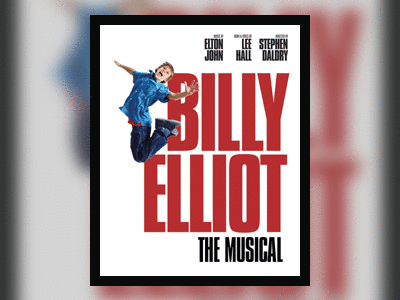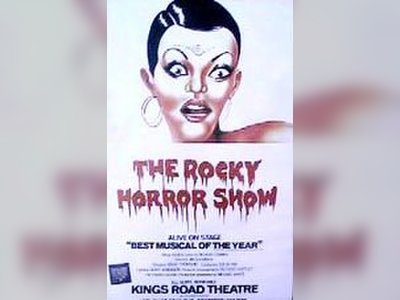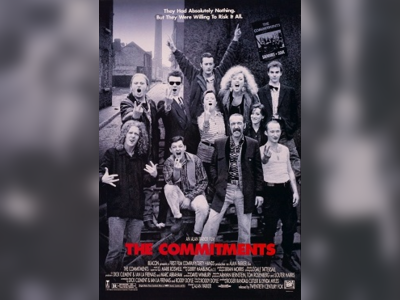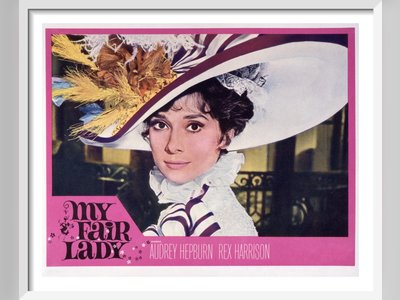British Heritage
Remember, Cherish, Learn.
beta
A Hard Day's Night
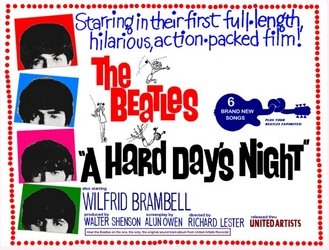
Contribution of "A Hard Day's Night" to British Heritage.
"A Hard Day's Night" stands as a timeless and influential masterpiece that has left an indelible mark on British heritage. Released in 1964, the film not only showcased the unparalleled talent of the iconic English rock band, The Beatles, but also captured the essence of Beatlemania during its peak. Directed by Richard Lester and written by Alun Owen, the movie provided an authentic portrayal of the band members' lives as they prepared for a television performance over a whirlwind 36-hour period.
This cinematic gem was a revelation in terms of its style and presentation. Embracing a cinéma vérité approach, the film's black-and-white aesthetics lent it a distinct charm that mirrored the era's spirit. Its witty and engaging script, influenced by the Beatles' own personalities and experiences, captured the hearts of audiences worldwide.
"A Hard Day's Night" emerged as both a critical and financial success. It received acclaim from film critics, with Andrew Sarris of The Village Voice comparing it to "the Citizen Kane of jukebox musicals." The film's humor, wit, and irreverent charm endeared it to viewers, and it quickly became a box office hit. Its popularity was such that over 1,600 prints were simultaneously circulated.
Nominated for two Academy Awards, including Best Original Screenplay, "A Hard Day's Night" solidified its position as a cinematic gem. The film's soundtrack, featuring music composed by John Lennon and Paul McCartney, further bolstered its success. Songs like the title track, "A Hard Day's Night," and "Can't Buy Me Love" became iconic classics and contributed to the film's overall impact on pop culture.
In subsequent years, the film's legacy endured. Time magazine, forty years after its release, acknowledged it as one of the 100 all-time great films. British critic Leslie Halliwell regarded it as a "comic fantasia with music," giving it a full four-star rating. The British Film Institute ranked it as the 88th greatest British film of the 20th century in 1999.
"A Hard Day's Night" left an indelible impact on British culture, shaping the cinematic landscape and influencing various artistic realms. It sparked a wave of musical films and inspired numerous spy films, such as the James Bond series, along with other low-budget musical film ventures starring British pop groups like Gerry and the Pacemakers.
Moreover, the film's daring style and presentation served as a forerunner for modern music videos. Director Richard Lester's innovative use of quick cuts, handheld cameras, and synchronized visuals to the beat of the music laid the groundwork for the MTV generation, earning him the title of "father of MTV." The film's effect on the film industry and music visuals remains evident to this day.
Additionally, "A Hard Day's Night" challenged societal norms and provided a platform for the Beatles to express themselves freely. The film portrayed them as likable young lads grappling with their own fame and trying to find moments of normalcy amidst the chaos of Beatlemania. This portrayal emphasized their individuality, fearlessness, and a break from established conventions, resonating with audiences and inspiring a sense of confidence among the youth of the time.
"A Hard Day's Night" is more than just a musical comedy film; it represents a significant cultural milestone in British heritage. With its innovative style, memorable soundtrack, and authentic depiction of the Beatles' lives, the film captured the hearts of millions, becoming a timeless classic. Its influence on cinematic techniques, music videos, and British pop culture cemented its place in history as a trailblazing masterpiece that continues to inspire generations of artists and audiences alike.
This cinematic gem was a revelation in terms of its style and presentation. Embracing a cinéma vérité approach, the film's black-and-white aesthetics lent it a distinct charm that mirrored the era's spirit. Its witty and engaging script, influenced by the Beatles' own personalities and experiences, captured the hearts of audiences worldwide.
Success and Recognition
"A Hard Day's Night" emerged as both a critical and financial success. It received acclaim from film critics, with Andrew Sarris of The Village Voice comparing it to "the Citizen Kane of jukebox musicals." The film's humor, wit, and irreverent charm endeared it to viewers, and it quickly became a box office hit. Its popularity was such that over 1,600 prints were simultaneously circulated.
Nominated for two Academy Awards, including Best Original Screenplay, "A Hard Day's Night" solidified its position as a cinematic gem. The film's soundtrack, featuring music composed by John Lennon and Paul McCartney, further bolstered its success. Songs like the title track, "A Hard Day's Night," and "Can't Buy Me Love" became iconic classics and contributed to the film's overall impact on pop culture.
In subsequent years, the film's legacy endured. Time magazine, forty years after its release, acknowledged it as one of the 100 all-time great films. British critic Leslie Halliwell regarded it as a "comic fantasia with music," giving it a full four-star rating. The British Film Institute ranked it as the 88th greatest British film of the 20th century in 1999.
Influence on British Culture
"A Hard Day's Night" left an indelible impact on British culture, shaping the cinematic landscape and influencing various artistic realms. It sparked a wave of musical films and inspired numerous spy films, such as the James Bond series, along with other low-budget musical film ventures starring British pop groups like Gerry and the Pacemakers.
Moreover, the film's daring style and presentation served as a forerunner for modern music videos. Director Richard Lester's innovative use of quick cuts, handheld cameras, and synchronized visuals to the beat of the music laid the groundwork for the MTV generation, earning him the title of "father of MTV." The film's effect on the film industry and music visuals remains evident to this day.
Additionally, "A Hard Day's Night" challenged societal norms and provided a platform for the Beatles to express themselves freely. The film portrayed them as likable young lads grappling with their own fame and trying to find moments of normalcy amidst the chaos of Beatlemania. This portrayal emphasized their individuality, fearlessness, and a break from established conventions, resonating with audiences and inspiring a sense of confidence among the youth of the time.
Conclusion
"A Hard Day's Night" is more than just a musical comedy film; it represents a significant cultural milestone in British heritage. With its innovative style, memorable soundtrack, and authentic depiction of the Beatles' lives, the film captured the hearts of millions, becoming a timeless classic. Its influence on cinematic techniques, music videos, and British pop culture cemented its place in history as a trailblazing masterpiece that continues to inspire generations of artists and audiences alike.
- A Hard Day's Night (film)en.wikipedia.org
